Death can be the hardest subject to talk about especially with a child.
It can be even tougher if you are going through a period of grieving yourself and your child comes to you, wanting to talk about it.

The generation where our parents live in may choose to ignore the questions we may ask about death, as they believe that talking about it may bring bad luck to their family. Some parents today would still choose to shove the questions away because they have no idea how to respond to the questions their child is asking. Some would try to answer as they would to adults and may unintentionally make their child more confused.
A friend shared with me that her daughter who once witnessed a burial, asked her:
“Mom, why do they scoop soil on the coffin?”
“Oh, she’s resting and they are putting the soil on her so that others would not disturb her.” Her mom replied.
When they got back to the car, her daughter placed her toy, Bob-the-builder into a cup holder and started to pretend to put something on the toy. Her mom noticed her actions and asked what was she doing.
She replied, “Bob wants to sleep, so I am putting soil on him so that no one will disturb him!”
Indeed from her experience, what a parent shares or explains to a child is very important, as they will take our explanations literally.
So what do we do when we are faced with questions regarding the death of a person or a pet that they love?
1. Allow Children to Ask Questions
It is normal for an adult to be curious about death, let alone a child, even if they have not lost someone close to them before. It is important for us as their parents to answer their questions about death as honestly as we can.
Borrowing some age-appropriate storybooks about children whose pets or grandparents die can also help in our conversations about death with our children. It may also be helpful to use a well-equipped dollhouse that has “life-saving” elements such as doctors and nurses, fire engines and animals to help the child relate to the incident and to encourage her to share her emotions through play. Some children prefer drawing to express their emotions. Parents can also try to discuss the matter and attend to their emotions gently with their drawings.
2. Keep It Honest, Simple and Brief
It is important for us to check the words we use to describe death when we talk to our children. Avoid big adult jargons such as “she has passed on”, “resting in peace” or “eternally sleeping”. Also, do take note of using words like “they died in their sleep” – some children confuse death with sleep, and they may eventually be afraid to go to bed as they are worried that they will not wake up either!
Children at a young age are unable to handle too much information at once. As such, it is wiser to explain death as truthful and as simple as one can get, such as in terms of physical functions that may have ceased. “Grandma has died and her body has stopped working. She cannot run or walk anymore and she cannot feel any pain.”
If the child has lost someone close to them, it may be good to give answers that can help him understand the basics such as who is going to bathe him or who is going to bring him to school now that mom has died.

3. Express Your Own Emotions
It is absolutely healthy and good for an adult to share his emotions with a child, of course, in simple terms and not with excessive grief. By doing so, it shows a child that it is acceptable to cry and grieve in this household and that grieving is a part of the healing process. Also, it will allow the child to freely express himself knowing that it is acceptable.
As parents, we could explain that grownups need to cry sometimes, too, just like them. We can share with them simply why we are sad, such as because we miss grandma. Our child is very sensitive to the changes in the moods among the adults, even if we don’t share them openly. They’ll be even more worried and confused when they sense that something is wrong but the adults are trying to hide it.
4. Process How You Would Wish to Share
If we intend to share about heaven based on our religious beliefs, it is best to think through how we wish to share in the most simple manner that would not cause your child to be more confused and worried. Our children may sometimes be confused when an adult shares with them that the deceased is happy now that he/she is in heaven because they see that everyone else is crying and sad. These are inconsistencies in the emotions that are shared by the adult and observed by the child.
Or if a parent were to answer “Mary has been a very good girl thus God wants to bring her home with Him.” Your child may be worried and wonders if she has been a good child and if she should be good so that God can bring her home, or if she should not and would be able to stay behind with her mom and dad. A simple reply such as “We are so sad that Mary is not with us anymore, and we will miss her very much, but it is comforting to know that she is in a better place now” will be sufficient to reassure your child where the deceased is now.
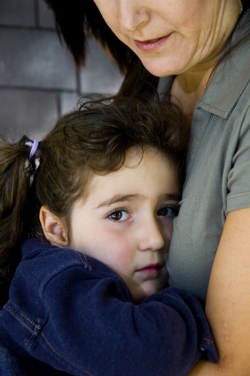
5. Be Prepared and Don’t Downplay Death
Do not read into a child’s comment if he/she seemed unaffected by the death. They are just a reflection of the child’s age-appropriate inability to comprehend the true impact of death among the adults around them. The child may also feel sad, angry or even guilty about what has happened. Whichever the case, allow them to feel however they want and to assure him/her that it is not their fault and that there was nothing they did that has caused the death.
Also, try not to downplay the death by saying, “Don’t be sad” because that would mean that it is not acceptable to be sad. Instead, show more empathy and assurance to your child, tell him/her that it is all right to cry and expect more questions from him/her like how a normal person who grieves will ask constantly.
6. Memorialise the Deceased
Having a personalised and small simple memorial service at home in a child’s manner will help the child grieve better and process what has happened. A simple drawing or lighting of a candle at home may help the child to process his/her emotions.
If a child is needed to attend the regular funeral service, it may be helpful for the adult to explain to the child what he/she would expect to see at the funeral. By doing so, this will help the child process the death better and help him/her to cope better at the service.
7. Go Easy On Yourself
If you are already grieving about the death of your beloved family member or friend, cut yourself some slack and allow yourself to grieve. It is alright to cry in front of your child. Seek help and support from relatives and friends to tend to your child or bring him/her out for an outing while you have some space and time to process.
Getting the child’s routine back to normal is of utmost importance so the child can adjust back to his/her life. The sooner your child gets back into his routine in life, the easier it would be for him.
Do not remove them from their usual activities because they are sad, but rather allow them to return back to their normal routines. Do not also overpack their routines with more commitments that would overwhelm them either. A balance is most appropriate.
By Yvonne Chee.
Like what you see here? Get parenting tips and stories straight to your inbox! Join our mailing list here.
Want to be heard 👂 and seen 👀 by over 100,000 parents in Singapore? We can help! Leave your contact here and we’ll be in touch.












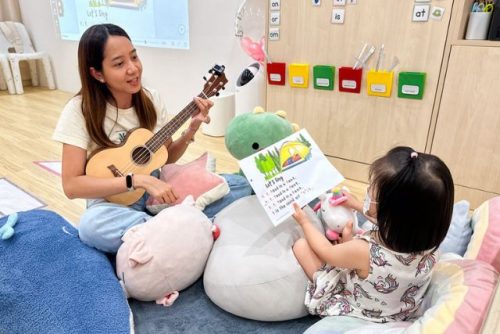


























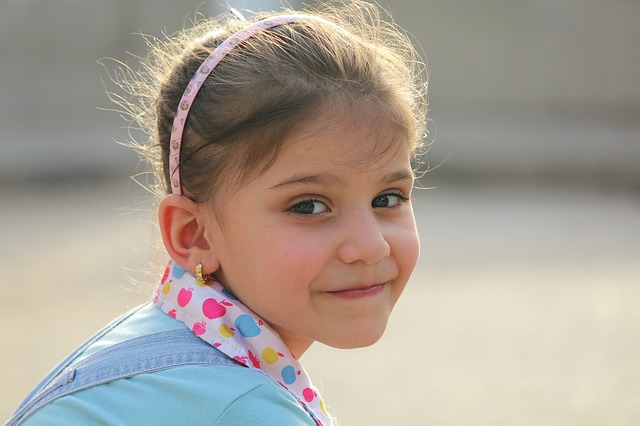

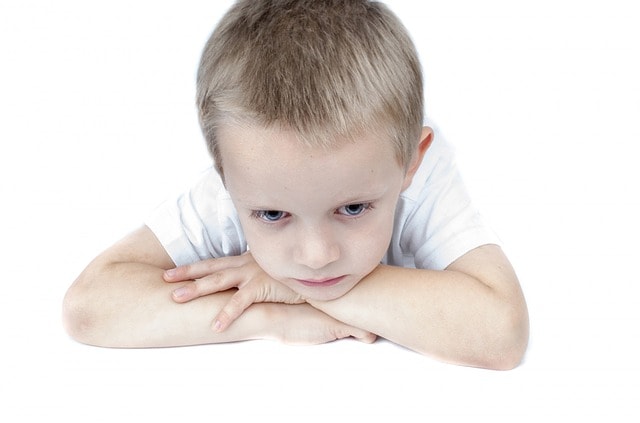
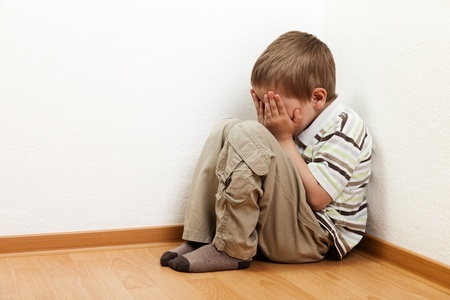



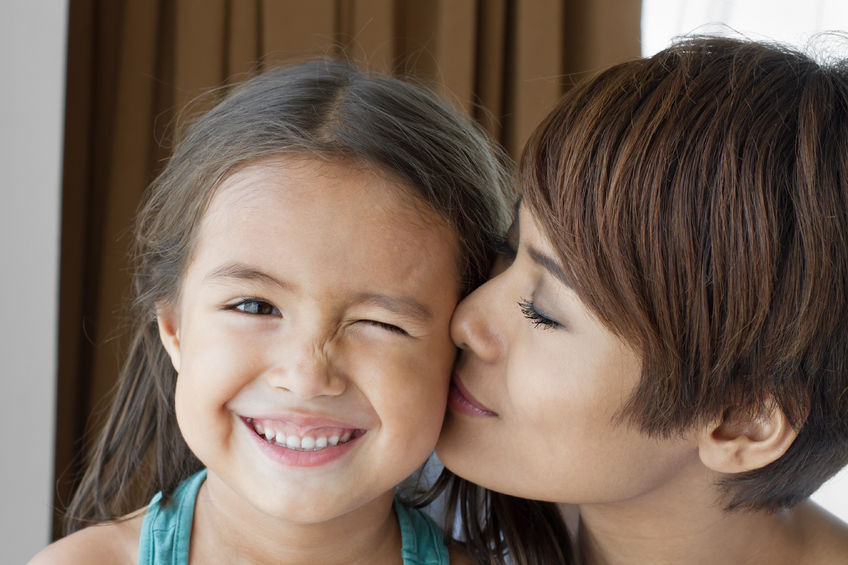

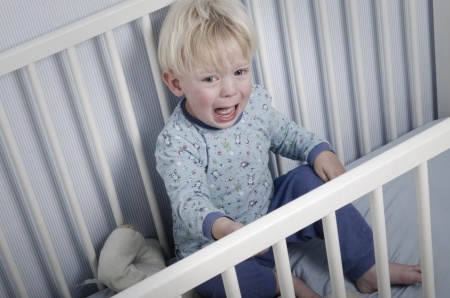











Leave a Comment: